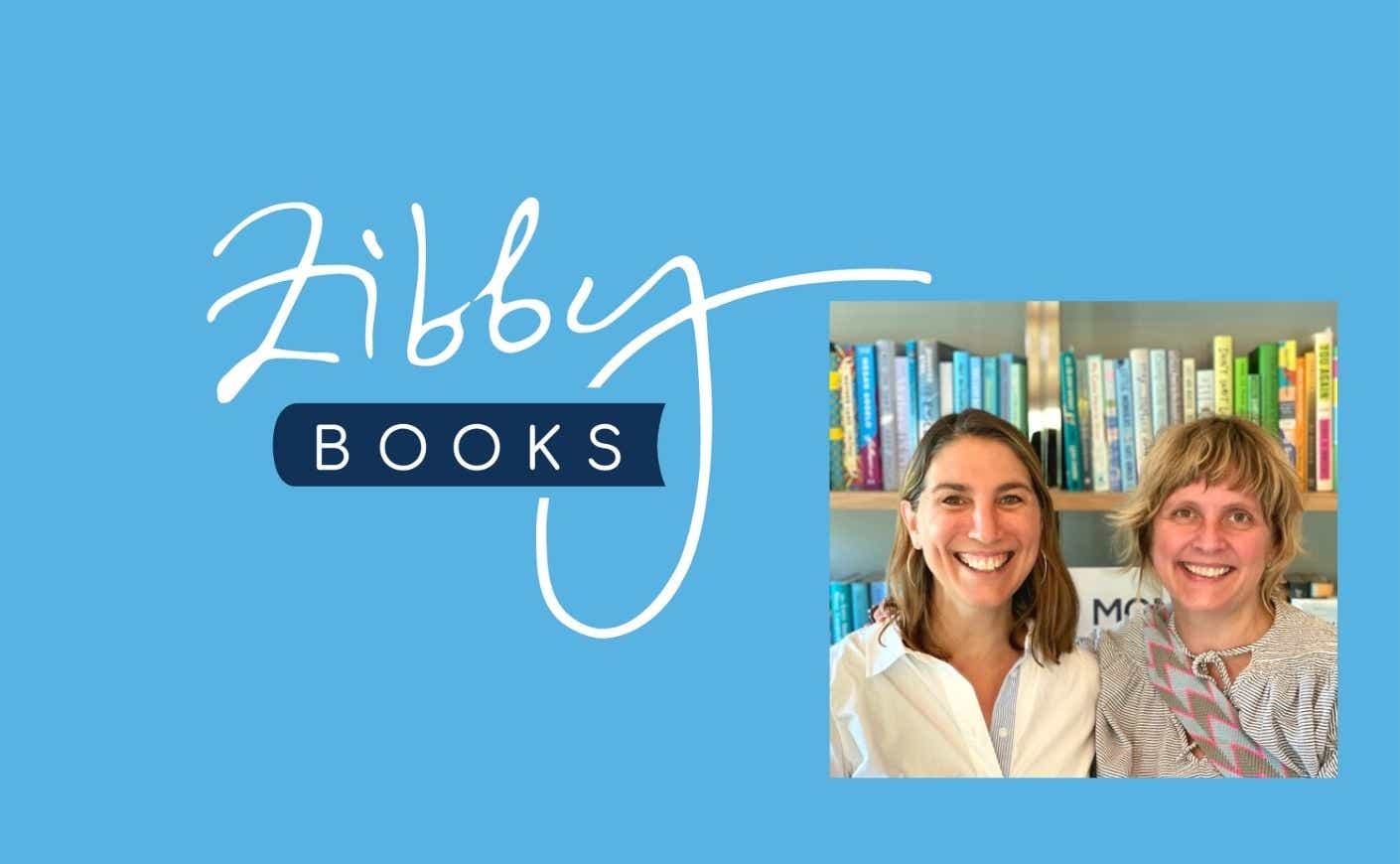As “NYC’s Most Powerful Book-fluencer” — according to none other than NY Magazine — Zibby Owens knows her way around a reading list. That's why it feels so fitting that the mom, podcaster, author, and founder of the media company Moms Don't Have Time To is launching a company that's poised to upend the way books are published and promoted. (She'll also be doing a weekly book column for this very site: stay tuned for more details!) Zibby Books, her brand-new book publishing company, co-founded by industry vet Leigh Newman, is devoted to subverting the way this old-school business model functions.
Starting in January 2023, Zibby Books will publish one new title a month, focusing on moving fiction and memoir from both well-established and first-time authors. But while book publishing has been taken over by the phenomenon of celebrities promoting new titles, Zibby Books will rely on beloved bestselling authors to help push new books forward. These authors, dubbed "Book Champions" will have an equity stake in the emerging author's book, giving it the push it needs to see it break through in an ultra-challenging industry. (Owen's title at the company? Fittingly, it's Reader-in-Chief.)
We asked Owens — who has a new book of her own coming out in November, as well as a memoir and two children's books on the way — and Newman to tell us more about the creation of Zibby Books, their hopes for its future, and why we need fresh, compelling stories now more than ever.
KCM: Congrats on launching Zibby Books! What's your vision for it?
Zibby Owens: We're reimagining each channel of how books are brought into the world, from inception to publication. We're changing things up and reimagining how the process can and should look. We have open communication among all our authors and with the independent bookstore community. We even established an indie-bookseller advisory board with 11 indie bookstore owners, and we want to work with them directly. We also want to help them sell books in ways perhaps they haven't thought of — bringing books to readers in new ways outside of the doors of a physical bookstore. And for marketing, we want to experiment with new ways of reaching readers and keeping them engaged.
Because publicity is so hard to get for books — authors are always frustrated. It's very hard to break out, and a lot of authors have come to rely on each other in this informal support network. But aside from a few major book clubs, books sometimes get lost that are amazing. And we don't want that to happen. In our Book Champion program, we pair debut authors with an established author from the very beginning, so that the established authors can be a mentor and have a vested interest in the success of the book from the outset, so you don't have to just hold your breath and hope.
Leigh Newman: In some ways, the traditional model would be that you publish a book, then sell it, and then try to have it picked up by a book club. But we're starting the book club from the publishing angle. So the authors, editors, and readers are in the book club altogether from the get-go. There's not a big wall where it's a publishing company over here and then the readers over there.
ZO: Distribution-wise, instead of just relying on sales, we really want fans — book lovers — to get out in their communities and make a difference, because word-of-mouth is so important. We want to equip book lovers in a hyper-local way to really become a part of our community.
LN: Letting readers advocate for the books they love is probably the best sales technique you could think of. Zibby kind of came up with the idea of Book Ambassadors, where people in local communities are actually going to go and help sell titles into bookstores, not just traditional reps. Our idea is to try and mobilize regular readers to be involved in the company, to be compensated, and to be involved in a book club.

Zibby, you've interviewed almost 1000 authors over the past few years on your podcast. Was there a particular moment that helped you realize you wanted to start this new method of publishing?
ZO: It's been building and building and building with the more data I get, and the more conversations I have. I've been looking at all different angles of this industry because I've sold books and had experience on the author side. I've seen what works, what doesn't work, and what I wish would happen. I thought about opening a bookstore, originally — I just love, love books, and I love the industry. I haven't come from a publishing background, and I think that's a good thing. That’s why I have Leigh, who’s a superstar in that regard, and Anne Messitte, our publisher, who's amazing. I'm just all about trying to make things more efficient and make people feel more valued.
What kind of authors and stories are you looking to publish?
ZO: We're looking for fiction and memoir with a strong sense of voice and place — a diverse cadre of people of all types with different experiences that are relatable and accessible.
LN: It’s what they call "book club fiction." It’s of course going to be well written and engaging — you're going to want to turn pages. But it's also going to be accessible. We're thinking about the reader and the kind of stories that'll inspire people and make them want to sit down and dedicate that time each month to read, and then participate in all the conversations and podcasts and support and talks around that book.
ZO: Our tagline is, “Telling it like it is,” because that's so important to us. We want people to read, and for their lives to become better in some way as a result of reading these books. We want our books to be timeless and relatable. This is a community because there's a person behind every book. We really choose and invest in the authors and we'll do whatever we can. These books aren't going to get lost.
How will the profit-sharing program work?
ZO: The employees of Zibby Books and the authors will benefit. Because every book is produced by a team of people, and I don't think one is more important than the other. Everybody from the copy editor to the VP of whatever: Everybody makes that book a success. So I wanted all the employees to share in the success of the book and feel ownership of it. I also wanted the other authors to feel that way, because the more they help each other, the better off they'll all be. I want them all to get to know each other, and share the knowledge and help market each other's books, and become friends.
What's the most exciting part of Zibby Books, for you?
ZO: I want to create a place that I want to be a part of. There's something palpable about our shared vision and mission: We’re not inventing something totally new, but I feel like we have the expertise, collectively, to make a huge difference. I'm also excited for the actual books and the community we're building. That’s what everybody looks for in life — a sense of purpose, giving back, feeling like you're needed, and that your contributions matter. That's something we can give to everybody on our team, and to everybody who makes books, and hopefully to the readers, too.
Our mission is to create a fantastic collection of books, create a real community around them, and treat authors like the rock stars they are. And we want to do it differently. We need connection so much more than ever, after this period of isolation. So anything we can do to help get readers really profoundly affected by a story — that’s what makes us feel really good.









